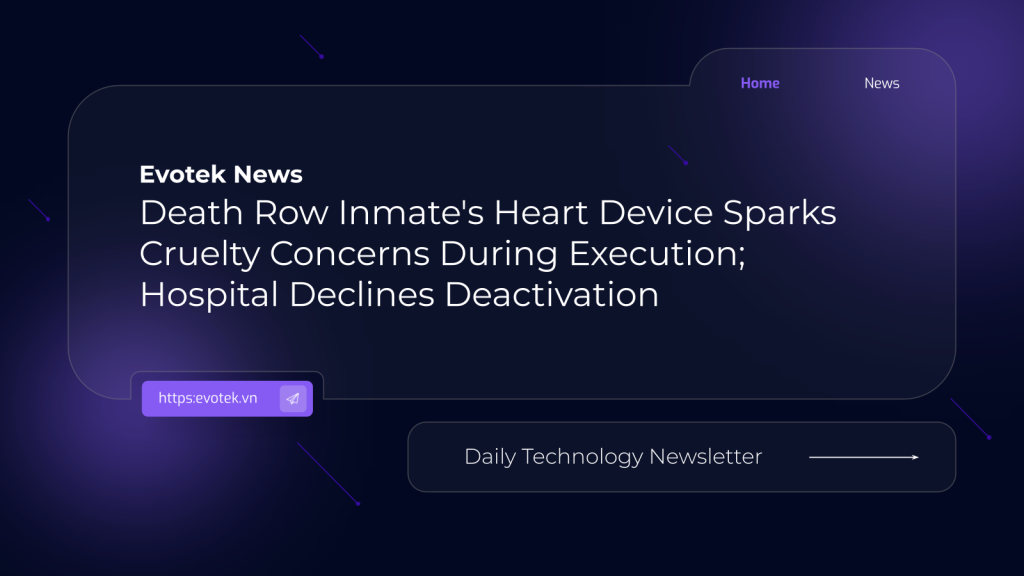Attorneys for a death row inmate in Tennessee are raising alarms, contending that their client’s implanted heart device will deliver repeated, excruciating electrical shocks during his scheduled lethal injection, effectively torturing him as the state attempts to carry out his execution. A judge had previously mandated the deactivation of the device, yet Nashville General Hospital, a facility with a state contract for prisoner medical care, now states it will not comply, asserting it “has no role in State executions.”
Byron Black, 69, is set to be executed on August 5, 2025. He received an implantable cardioverter-defibrillator (ICD) in May 2024. This critical medical device functions as both a pacemaker and a defibrillator, designed to electrically shock his heart to restore a normal rhythm in emergencies. Black’s execution is slated to proceed via a high dose of pentobarbital, a drug intended to slow and ultimately stop his heart rate. His legal team fears the ICD will repeatedly activate in response, trying to counteract the drug’s effects, thereby causing severe pain and suffering—a scenario they argue constitutes cruel and unusual punishment, prohibited by the Eighth Amendment to the U.S. Constitution.
On July 18, a court ordered that Black’s heart device must be deactivated prior to the execution. The Tennessee Department of Correction (TDOC) had indicated in court documents that an agreement was in place with Nashville General Hospital for this procedure. However, the hospital has since told the Associated Press that it never consented to deactivating Black’s pacemaker, deeming the request “well outside of that agreement,” despite its existing contract to provide medical services to incarcerated individuals.
Kelley Henry, an attorney representing Byron Black, issued a statement warning that proceeding with the execution without deactivating the ICD would result in her client’s torture. “Unless the ICD is properly deactivated at the moment of execution, Byron Black’s execution will be a gruesome spectacle,” Henry asserted. She added that the TDOC, which facilitated the device’s implantation, now risks “tortur[ing] Mr. Black to death as his heart restarts, prolonging the execution and increasing the likelihood of excruciating pain due to flash pulmonary edema.”
Black’s legal team further highlights his precarious health, which includes a broken hip, congestive heart failure, end-stage kidney disease, advanced dementia, significant brain damage, and an intellectual disability. Black, who uses a wheelchair, is described as elderly, frail, and cognitively impaired. In an effort to address these complex issues, his attorneys filed a motion for a stay of execution with the Tennessee Supreme Court.
Court filings specify that the implanted device is a Boston Scientific Dual Chamber ICD Resonate HF EL (model number D533). Black’s attorneys contend that only a cardiologist or a technician specially trained by Boston Scientific and supervised by a cardiologist proficient in the company’s proprietary software and hardware can safely deactivate the device. They dispute the notion that a general physician possesses the necessary qualifications for such a procedure.
While the Tennessee Department of Correction referred inquiries to the local Attorney General, court documents reveal their belief that deactivating the heart device before the execution is not necessary. The state maintains that Black would not feel the shocks, a claim vigorously contested by his legal counsel.
In a June 30 court filing, Black’s attorneys argued, “The first sequence of shocks (up to 8 shocks per sequence) will very likely succeed in restoring Mr. Black’s heart rhythm. Indeed, studies have demonstrated that an ICD’s first shock sequence is effective in 89–100% of cases.” They emphasize that these electrical shocks are “extremely painful and distressing.” The attorneys warn that the interaction between the ICD and the lethal injection could prolong the execution process for over 30 minutes before Black succumbs. They also counter the state’s argument about Black’s potential unawareness of pain, noting that some studies “confuse unawareness with unresponsiveness.”
Byron Black was convicted in 1988 for the shooting deaths of his girlfriend, Angela Clay, and her two young daughters, 9-year-old Latoya and 6-year-old Lakeisha. Reports indicate Black was on work release at the time, following an incident where he shot and injured Clay’s estranged husband, and was reportedly in a “jealous rage.” Black’s attorneys are now appealing to the governor to commute his death sentence to life imprisonment.
“Byron’s execution carries so many risks,” his attorney reiterated in a statement. “He is elderly, frail, and cognitively impaired; there’s no principled reason to move forward with this torturous procedure. But if Tennessee is going to kill this fragile old man, TDOC must bring in a trained professional to properly deactivate the ICD at the moment the execution is carried out.”

 日本語
日本語 한국어
한국어 Tiếng Việt
Tiếng Việt 简体中文
简体中文